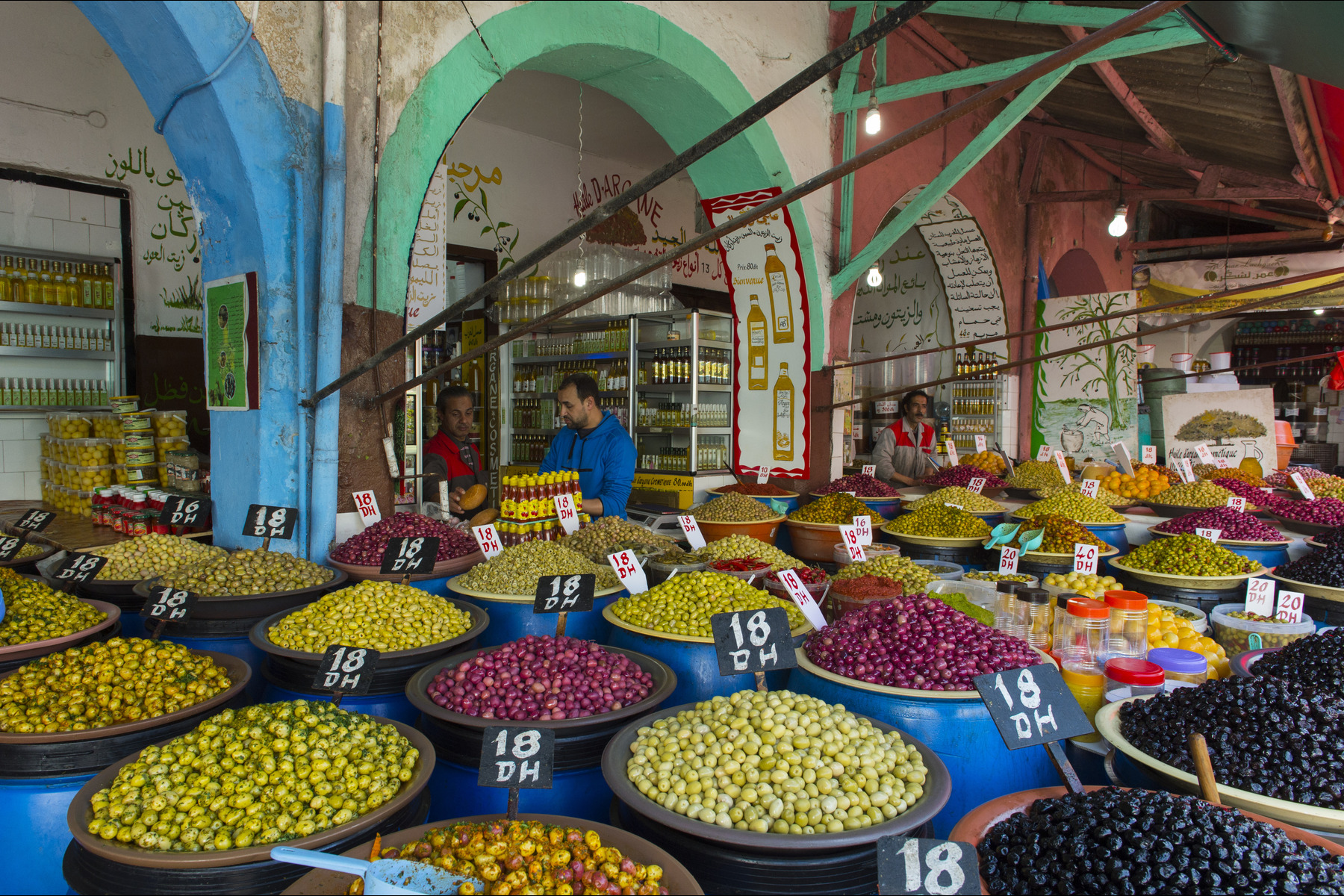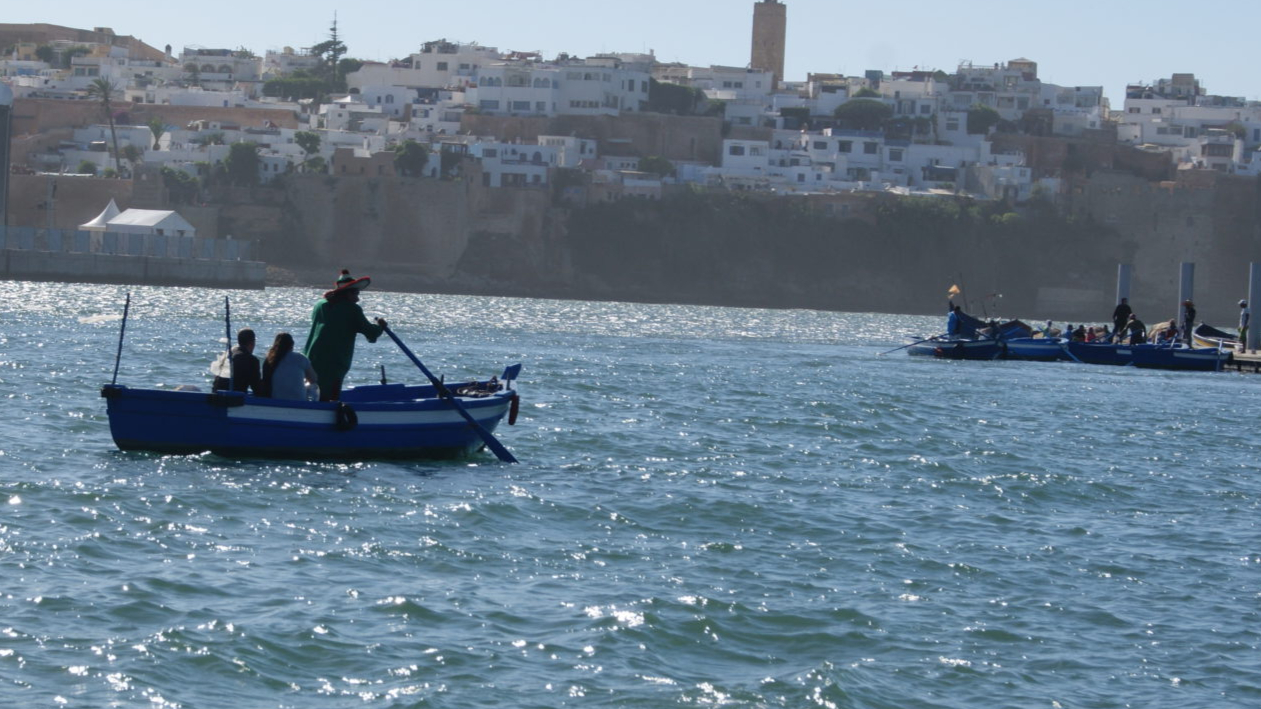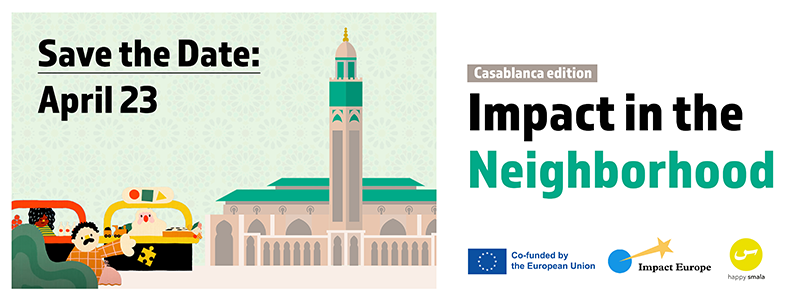Finding Funding in Morocco
It takes a certain amount of vision and agility to set up a social enterprise in Morocco. Oumelghit Guelzim, currently working at our partner Happy Smala, has first hand experience with the illustrious funding gap faced by starting entrepreneurs. Now, she and her colleagues are hard at work to improve these conditions and to help impact-driven enterprises find the right funding at the right time.

Scorching heat, barren landscapes and miles and miles of nothingness. Some people dream of visiting Death Valley in the Californian Desert, albeit only for a short time. For many entrepreneurs, the words ‘Death Valley’ carry another meaning entirely. Where man needs water to survive, enterprises need funding. Especially in the early stages, where the need for investment is high but the initial revenues still low, many of these enterprises deplete their resources too early, leaving them in the ominous ‘valley of death’ on the funding curve.
While these difficulties are global, they are exacerbated in regions and countries where funding is scarcer in general. For social entrepreneurs, there is the added difficulty that they often have to compete with commercially inclined enterprises, especially in countries that do not have specific incentives and regulation around impact-driven enterprises. The result is that many starting social enterprises struggle to grow fast enough to make it through Death Valley in one piece.
The Story of Oum
It is a story that is relatable to Oumelghit Guelzim, currently working at Happy Smala, our Moroccan partner in the EU-funded Impact Together! project. Her own journey started as an entrepreneur – at just 17, the general supervisor of her high school proposed to students to join an optional entrepreneurship program. "Can this wait until we've taken our parents' advice?", she asked. His answer, though curt, changed her mind: "Opportunities like this, when they arise, are not to be passed up. At your age, you should be able to make such a decision". A few minutes later, she put her name on the list of the Injaz Al Maghrib program, ran by a Moroccan non-profit that combats youth unemployment.
While the resulting venture eventually shut down, it did reveal to Oumelghit that she was passionate about entrepreneurship. By selling shares of their venture at €1 per piece, they managed to raise enough money to get the ball rolling. “This was the hardest part of this first adventure”, she recalls, “as there were really no other financing options open to us at the time”.
Later, at engineering school, Oumelghit joined the local social entrepreneurship club, Enactus. This is where her entrepreneurial spirit was fused with the spirit of making a positive impact. Using a design thinking approach, she co-founded Barqu’ade, a project focused around enabling traditional boat trips between Rabat and Salé. Not only was it a way of revitalizing a cherished tradition, but it also created working opportunities for local boat drivers. But while all the prototypes and tests were completed, the problem of funding to buy equipment remained. One Enactus member advised Oumelghit to “try crowdfunding – after all, you have nothing to lose”.
Crowdfunding Your Way Out
At the time, there was only one crowdfunding platform operating in Morocco: Smala & Co, the organization that is now Happy Smala. By registering in France, they were able to provide crowdfunding operations in Morocco, where there was no legal framework for these kinds of funding activities. For Barqu’ade, their involvement provided the necessary funds as well as invaluable promotion and feedback from investing crowdfunders. “Crowdfunding is really a sort of market test, in that way”, Oumelghit adds. From an enterprise that had nothing to lose, they went to an enterprise that had everything to win.

For Oumelghit, the encounter had even larger implications. Inspired to learn more, she joined Smala team as an intern. Having arrived at this point in her career, she had to decide – to either accept one of the lucrative proposals from a larger multinational, or to continue carving her own way as an entrepreneur. She had good reasons to be doubtful. As one of her mentors indicated, business failures in Morocco were common, with a notoriously highly decline rate for credit applications fielded by female entrepreneurs. In the end, though, Oumelghit chose to pursue her passion, joining the Happy Smala crew on a more permanent basis and co-founding more startups before focusing fully on providing access to finance in 2021.
Death Valley would continue to be a looming presence in these years. One of her projects called Ciwa aimed to promote financial inclusion and education through a mobile application, which offered digitalised tontines. Despite securing the second place at the Arab Financial Inclusion Innovation Prizes, the promising start was cut short through a lack of funding which was amplified by the arrival of COVID-19. While the premise was valuable, the journey to success was not clear-cut.
The Happy Smala way
Solving this issue is at the core of Happy Smala’s current activities. Continuing to build on their tradition of crowdfunding initiatives, the organization is increasingly moving towards ways of providing blended finance and capacity building support to help small social enterprises in navigating their way through (and beyond) Death Valley. For Oumelghit, there is an added motivation. “Whatever obstacles social entrepreneurs already face, are even larger for female social entrepreneurs. While there are specific financing instruments dedicated to them, they continue to face undue discrimination in these situations”.
In short, Happy Smala now support the development of the social entrepreneurship ecosystem on 3 levels:
- Microlevel: support entrepreneurs, civil society, and cooperatives through capacity building and needs assessments and by providing catalytic funding
- Meso level: support structures and the financial sector to innovate their products and services to better fit impact-driven SME’s
- Macrolevel: incentivize ministries and central banks to design and implement their strategies
Impact Europe is collaborating with Happy Smala through the EU-funded Impact Together! project, which aims to bolster the impact investing ecosystem in the MENA-region. We do this by helping improve access to finance, creating engagement opportunities for stakeholders and helping to push for more policy inclusion. These activities largely aline with the respective levels identified by Happy Smala, making the project a logical match with their existing strategy.
In practice, talks are ongoing about setting up an impact fund that can help provide grant and loan support to impact-driven SME’s. While this process takes time, financial support activities are already well underway. We have recently covered an example of how Happy Smala approach their mission by describing the Blended Finance Bootcamp and the subsequent Moroccan Impact Finance Forum, which were aimed at the microlevel (the bootcamp) and a combination of meso and macro actors (the Impact Finance Forum). Crucially, the learnings provided in the bootcamp are directed at making the selected SME’s more investment-ready and helping them make the most of the funding that they are able to secure.
Impact in the Neighborhood!

Now, on the 23rd of April, Happy Smala are hosting the second version of Impact in the Neighborhood, a regional event that brings together the local impact ecosystem with representatives of Impact Europe’s different EU-funded market building partners. The event is a testament to the growing scope of their work and will serve as an introduction of the new Crowdfunding Barometer, which provides an indication of the state of the funding landscape. At the same event, the Arab Impact Network, a new regional policy working group, will be introduced to the public.
Eager to know more or to participate? Send us a message and we are happy to share more about the event. You can also register directly here.
